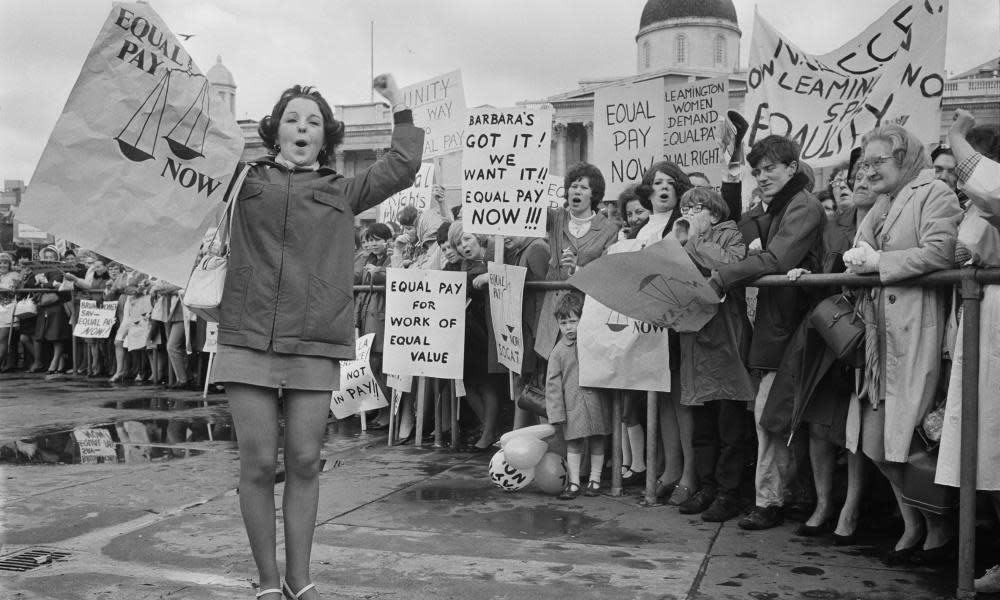‘Ladydata’ could help solve gender inequalities | Stella Creasy

Benjamin Franklin once argued nothing was certain except death and taxes. Certain they may be, but experience of both is very unequal. While women tend to live longer than men, their pockets are hit much harder when it comes to public revenues. And if one is a matter of physiology, the other is a question of politics. Without data to identify how and why, neither can be addressed.
It is now devastatingly clear that seven years of austerity budgets have hindered equality in Britain. Raising the personal tax allowance and the higher rate threshold to £50,000 may be popular, but it helps older white men most of all. More than 43% of adults do not earn above this allowance in the first place and, of these, 66% are women and 41% have dependent children. Seventy-three per cent of those who can expect to gain from raising the higher rate threshold are men.
The refusal to lift the public sector pay cap, where women make up two-thirds of the workforce, not only pushes more into poverty but also widens the gender pay gap. More than 40 years after the legislation, women still do not have equal pay and are therefore much more likely to be dependent on benefits. With policies such as universal credit, they will lose 10 times as much as they gain from initiatives such as the national living wage.
Understanding the impact of economic policy is not just about gender – if the government continues with its courses of action, black and ethnic minority women will lose 12 times as much. House of Commons analysis has found that 86% of cuts between 2010 to 2017 have fallen on women, costing them a total of £79bn since 2010, against £13bn for men.
Ending inequality in Britain requires not only action on the underlying problems, but also budgets that don’t make things worse. To make better choices requires politicians with the data to understand the consequences of their actions on the public – and the determination to act when presented with the numbers.
The last prime minister proclaimed sunlight was the best disinfectant. The current one and her team view a little knowledge as a dangerous thing. Stubbornly, they avoid calls for the collection and publication of evidence about the impact of Treasury policy changes, arguing it is too difficult and that inequality caused by one area of policy – tax – is offset by spending in others – childcare. Work by the Equality and Human Rights Commission, the Women’s Budget Group and the Institute for Fiscal Studies shows how it is both possible and desirable to measure the individual and cumulative impact of economic policies on different groups in society. It is a matter of mindset, not maths, to choose not to do so.
Failing to gather such evidence and react to it not only leads to poor policymaking, it is also a breach of the government’s statutory duties. Since 2011, the public sector equality duty has required action to advance equality across all departments.
After years of austerity, those paying the price for this government’s choices cannot wait any longer. That is why the “ladydata” campaign, which has taken off on social media, is calling for independent impact assessments of how any proposed budget affects different groups is conducted – and made public – ahead of being enacted.
As Brexit has shown, impact assessments are never a solution. They are a tool to help explain what could happen as a result of any decisions being made. What matters is what you do when presented with the results. No government can keep claiming it wants to help the “just about managing” while ignoring the fact that some are able to manage much better than others because of their gender or ethnicity or the region in which they live.
Over these coming days in parliament, we have a chance to make such impact assessments as much a part of the budget process as the annual speculation over the chancellor’s drinking habits. Yet if MPs vote against proposals to require these studies, then something else is as certain as death or taxes – inequality will persist.

 Yahoo News
Yahoo News 
